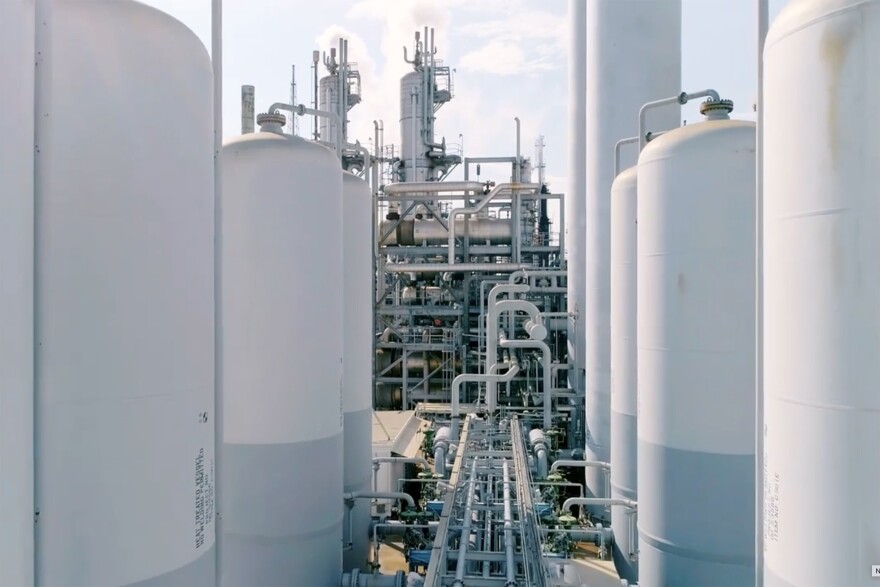The Senate Natural Resources Committee considered 11 bills related to carbon capture and storage (CCS) on Tuesday. Only one passed.
Carbon capture and storage is technology designed to collect carbon dioxide (CO2) and stop it from entering the atmosphere. The carbon is then typically injected underground to keep it from warming the planet and contributing to climate change. But critics of the technology say it helps maintain dependence on fossil fuels, particularly when it’s attached to new oil and gas projects.
The U.S. Environmental Protection Agency granted Louisiana primacy over Class VI wells in 2023, meaning that the state is responsible for permitting, enforcement and compliance of CCS facilities.
Many of the bills involved giving local governments more control over CCS projects in their areas. Two incidents in Louisiana and Mississippi, where pipelines transporting carbon burst and poisoned residents, have raised safety concerns about the technology.
“ What happened yesterday in [the Senate Committee on Natural Resources] I think was unfortunate especially given the amount of testimony that was given by members of the public raising their concerns about this new industry that's coming to Louisiana,” said Jackson Voss, the climate policy coordinator the Alliance for Affordable Energy.
“But it was not a surprising result given how effective the oil and gas and CCS lobby has been at the Capitol over the last few years.”
Over the course of 11 hours, eight of the bills failed, and two were voluntarily deferred.
“The bills that failed were bad for Louisiana, stifling opportunity with reams of red tape,” said Tommy Faucheux, president of the Louisiana Mid-Continent Oil and Gas Association. “CCS is an important part of the future of Louisiana’s energy industry, which generates 25% of our state’s economy.”
SB73, introduced by Sen. Mike Reese, provides special consideration to comments from local governments at public hearings and during public comment periods on projects.
Voss said the bill is a fig leaf.
“The terminology in that bill, while it might sound like it could be legalistic, doesn't really have any legal force to it,” he said. “It's more or less saying that the Department of Natural Resources will see you and hear you about your concerns and maybe take them into consideration when they're approving these projects in your backyard.”
The hearing comes after Gov. Jeff Landry announced CF Industries plans to build a $4.2 billion blue ammonia plant in Ascension Parish, the largest blue ammonia plant in the world. The plant will use CCS technology to capture the CO2 released as a result of producing ammonia.




